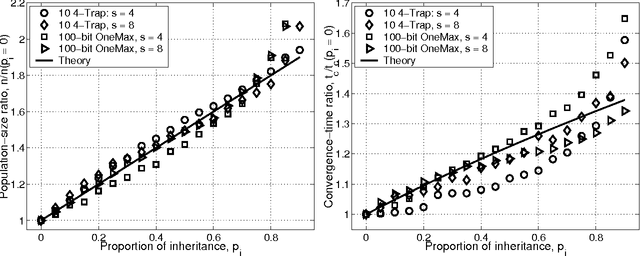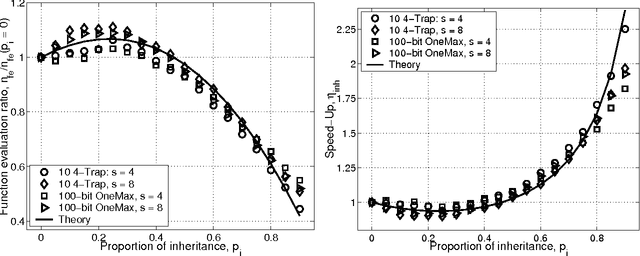Efficiency Enhancement of Genetic Algorithms via Building-Block-Wise Fitness Estimation
Paper and Code
May 18, 2004

This paper studies fitness inheritance as an efficiency enhancement technique for a class of competent genetic algorithms called estimation distribution algorithms. Probabilistic models of important sub-solutions are developed to estimate the fitness of a proportion of individuals in the population, thereby avoiding computationally expensive function evaluations. The effect of fitness inheritance on the convergence time and population sizing are modeled and the speed-up obtained through inheritance is predicted. The results show that a fitness-inheritance mechanism which utilizes information on building-block fitnesses provides significant efficiency enhancement. For additively separable problems, fitness inheritance reduces the number of function evaluations to about half and yields a speed-up of about 1.75--2.25.
 Add to Chrome
Add to Chrome Add to Firefox
Add to Firefox Add to Edge
Add to Edge